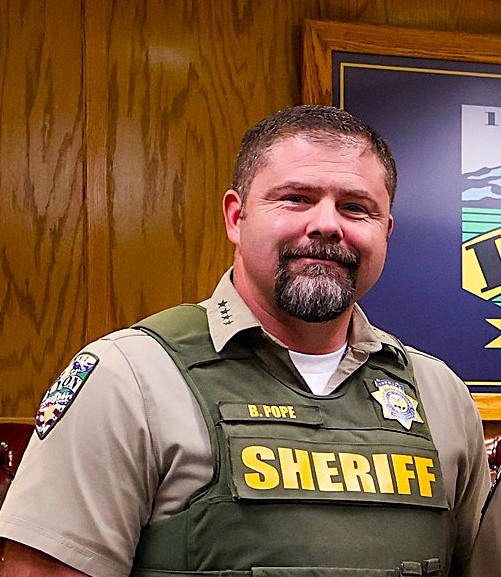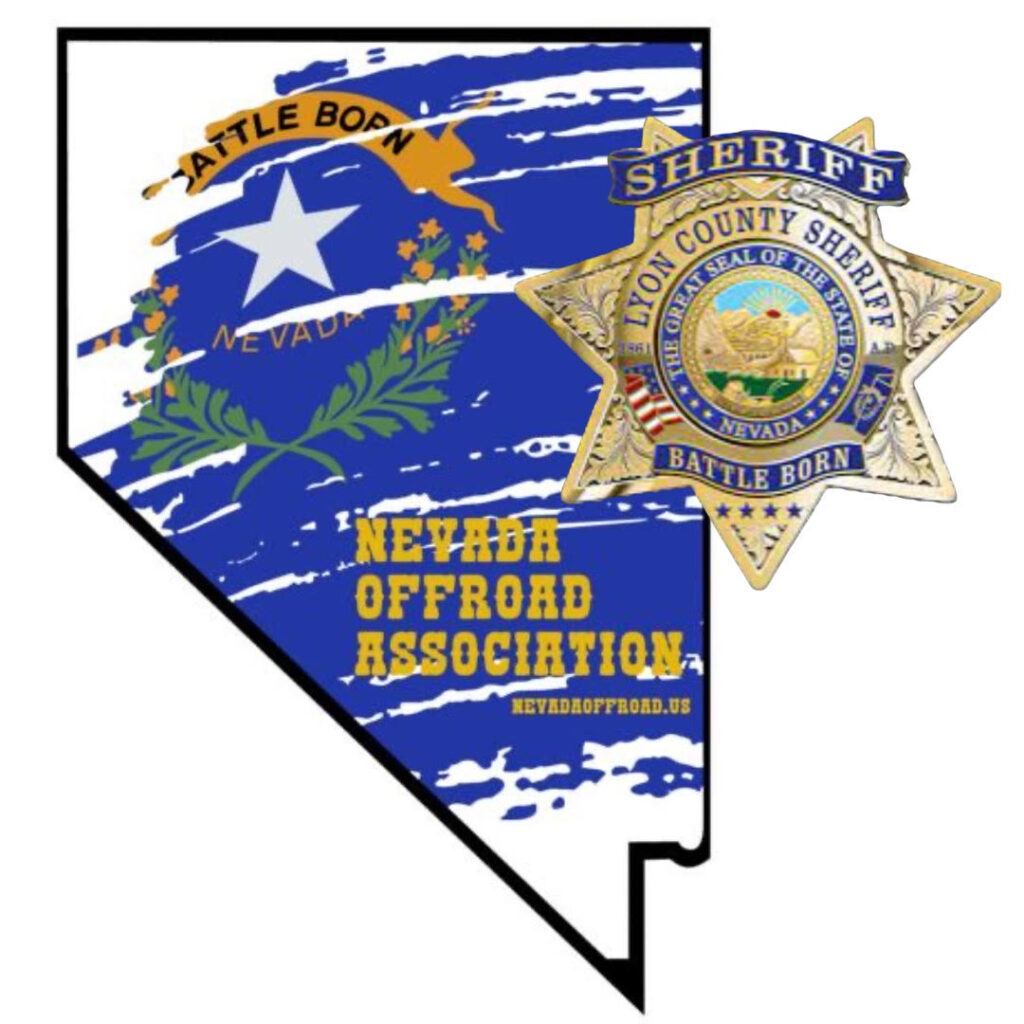Over the past several months, the Lyon County Sheriff’s Office has seen an increase in the illegal use of OHVs on our roadways. The Lyon County Sheriff’s Office has been inundated with citizen complaints regarding individuals (adults and juveniles) driving unauthorized vehicles on the roadways in a manner that is both unsafe and illegal. These complaints range from high rates of speed, reckless driving, and various other traffic offenses. The Lyon County Sheriff’s Office has made or attempted to make several traffic stops on individuals who are operating these vehicles illegally. These vehicles either flee, causing us to pursue, or are resistant to education attempts and continue to operate in an illegal manner.
A social media post has circulated regarding the Sheriff’s Office policy on the operation and enforcement of OHVs on our roadways. The post states that we are “targeting kids”. The age of the operator is a mitigating factor in the OHV law, but we have not set out to specifically target our youth.
In September, the Command Staff of the Lyon County Sheriff’s Office issued a standing order to the Deputies regarding the OHV law and our enforcement of such laws. I am attaching the language issued in that standing order. Yes, this order is a reversal of an email I sent to a community member. The Lyon County Sheriff’s Office was lenient and allowed the use of OHVs on roads as long as the operator was being “respectful”. Due to the high number of complaints and public safety issues, we reversed course.
This standing order was vetted through the NVORA, the Nevada Off Road Association (Their executive Board). NVORA has read through the order and is in full support of the Sheriff’s Office and the language of this order. They offered additional language, such as:
Headlight is required only after dark <490.120(2)>
This restriction is tied to only road use listed in #2 above. And would need to be codified in county ordinance surrounding a designated road ways ordinance if passed (490.110)
The Nevada Outdoor school is the primary OHV youth educator
Purpose
To establish clear enforcement guidelines for the operation of Off-Highway Vehicles (OHVs) on public roadways within Lyon County. The intent of this order is to deter and stop reckless or unlawful OHV operation that poses a threat to public safety, while exercising reasonable discretion toward residents and visitors who operate OHVs cautiously and responsibly to access trailheads, open lands, or other lawful riding areas.
Authority/Applicable Statutes
– Nevada Revised Statutes (NRS) Chapter 490 – Off-Highway Vehicles
– NRS 490.090 – Prohibition of OHV use on paved highways, exceptions
– NRS 490.100 – Authority of counties to designate OHV roadway use
– NRS 490.110 – Authorized and unauthorized highway operation
– NRS 490.120 – Equipment requirements for OHV roadway operation
– NRS 490.130 – Duties of OHV operators on highways
– NRS 483.230 – Licensing required to operate motor vehicle on a highway
– Lyon County Code – Enforcement authority of the Sheriff’s Office
Definition of Highway
NRS 490.040 defines a “highway” as having the meaning ascribed in NRS 482.045:
“Highway” means the entire width between the boundary lines of every way dedicated to a public authority when any part thereof is open to the use of the public for purposes of vehicular traffic.
*This includes all public roads in Lyon County, whether state routes, county roads, or city streets — not just state highways.
Policy
1. General Prohibition
OHVs are generally prohibited on paved highways unless specifically authorized by law or ordinance (NRS 490.090).
2. Permitted Use
OHVs may operate on:
– Unpaved county roads and public lands, unless posted otherwise (NRS 490.090).
– Trail crossings of highways at right angles when safe and lawful (NRS 490.110).
– Designated roadways approved by the County Commission under NRS 490.100 (none currently in Lyon County).
3. Registration
OHVs must be registered with the Nevada DMV and display a current registration decal (NRS 490.082–.083). Deputies shall verify current registration during contacts.
4. Insurance
Large ATVs (multi-passenger) operating under alternative registration must carry insurance and proof of coverage (NRS 490.0825).
5. Equipment Requirements
OHVs operated on or across highways must have (NRS 490.120):
– Functional headlights and taillights Headlight is required only after dark <490.120(2)>
– Brakes in good working order
– Muffler in good condition
– Spark arrestor (if continuing onto off-road use)
6. Licensing
Any person operating an OHV on a public highway must hold a valid driver’s license (NRS 483.230 + NRS 490.130).
Minors under 16 may only operate OHVs on designated highways if supervised by a licensed adult (NRS 490.100(2)). This restriction is tied to only road use listed in #2 above. And would need to be codified in county ordinance surrounding a designated road ways ordinance if passed (490.110)
Unlicensed operation on highways is enforceable the same as with any other motor vehicle.
7. Duties of Operators
OHV operators on a highway must obey all traffic laws (NRS 490.130). This includes speed limits, stop signs, signaling, yielding to traffic, and DUI laws.
8. Reckless or Dangerous Operation
Deputies shall make a reasonable effort to take enforcement action against OHV operators who:
– Travel at excessive speeds on public roads.
– Perform stunts, wheelies, or hazardous maneuvers.
– Operate without required equipment or registration.
– Carry passengers in an unsafe manner.
– Create excessive noise, dust, or disturbance in populated areas.
Violations may result in citation, impoundment of the OHV, or arrest as permitted under law.
9. Discretionary Enforcement
Deputies may exercise reasonable discretion when encountering OHV riders who are:
– Traveling slowly and cautiously to access legal trails or staging areas.
– Operating in rural neighborhoods where trail access is common.
In such cases, deputies may provide a verbal warning or educational contact unless aggravating factors exist.
10. Community Education
Deputies should distribute OHV law information cards (Nevada OHV Commission materials) when appropriate. The Nevada Outdoor school is the primary OHV youth educator
Effective Date
This order is effective immediately and shall remain in place unless modified or rescinded by the Sheriff.
End order.
Being a law enforcement/community leader is not an easy task. Decisions affecting public safety have to be made on a daily basis, and these decisions are not always accepted or agreed upon by all members of the community. Nonetheless, it is my responsibility to make those decisions and accept the feedback of both sides, whether positive or negative.

Respectfully,
Sheriff Brad Pope





More Stories
Remembering Justin Joseph Beltran & Jena-Marie Ortiz
Sheriff Pope’s Message of the Week on February 27, 2026
Mark Krueger Announces Campaign for Lyon County District Attorney